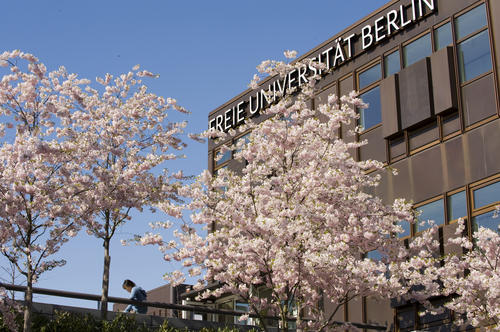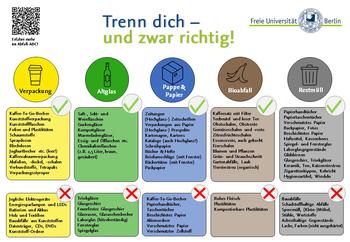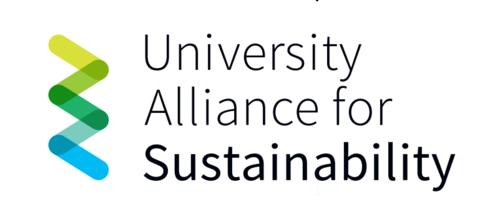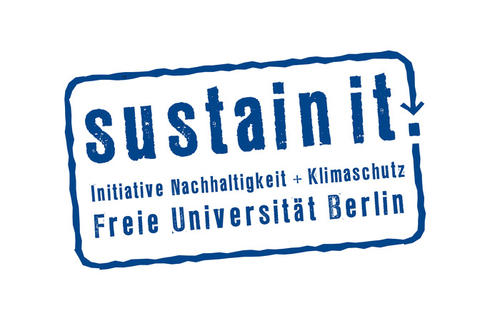Campus
Freie Universität Berlin contributes not only to the future-oriented development of society through its research and teaching, but also through its own institutional area of responsibility.
We think of the university and its campus as sites of learning and work that offers numerous opportunities for establishing exemplary sustainable development solutions. Measures for protecting resources and the climate have been of particular importance for years.
Energymanagement
Targeted energy efficiency programs—in combination with the university’s Bonus Scheme for Energy Savings and a Green IT program—have enabled the university to reduce its annual energy consumption by more than 25% (or 42 million kWh) between 2001 and 2011—with floor space remaining stable. Since 2011, energy consumption has remained virtually unchanged—despite an increase in the number of students and a considerable expansion of third-party spending.
Based on the Global Emission Model for Integrated Systems (GEMIS) and the Federal Environmental Agency’s (UBA) emission factors, energy-related greenhouse gas emissions were diminished by about 36% between 2001 and 2017 on a like-for-like basis. When factoring in CO2-neutral electricity purchases, emissions were even reduced by 81%. As a result, the CO2 equivalent of approximately 1,900 average households has been saved annually since 2011. Thanks in large part to four highly efficient combined heat and power plants and nine photovoltaic systems.
Waste- & Ressourcemanagement
We also place great emphasis on waste management and recycling. About two thirds of waste are recycled. Teaching, research, and administrative operations are paper intensive. The university focusses on reducing paper waste and to use only. Blue Angel-certified recycled paper. By 2021, we want to have halved our number of printers.
Freie Universität Berlin’s structural and technical infrastructure is a determining factor in its operational performance. The university continuously strives above all to improve study and research conditions by increasing spatial concentration and by refurbishing and modernizing university buildings, all while working toward cost-effectiveness and energy efficiency.
Mobility & Campusmanagement
Freie Universität is located in the green district of Dahlem. About three-fourths of its campus is not built on and is largely usable green space. Many green areas are ideal for lingering and relaxing. The Botanic Garden and the Botanical Museum are central facilities of Freie Universität Berlin. The Botanic Garden is one of the world’s largest in terms of area, but also in terms of its breadth and diversity of its flora, encompassing about 20,000 plant species. The Botanical Museum is the only one of its kind in Central Europe.
Climate-neutral campus operations is the long-term goal. To reach it, we have planned further improvements in energy efficiency, the increased use of regenerative energies, and the promotion of climate-friendly mobility and sustainable acquisition.






